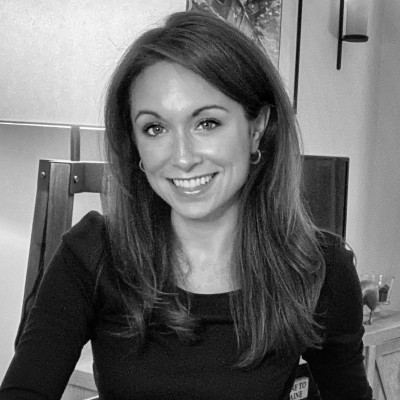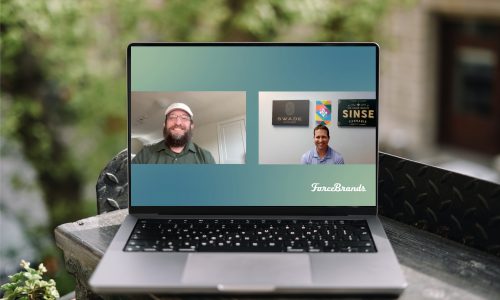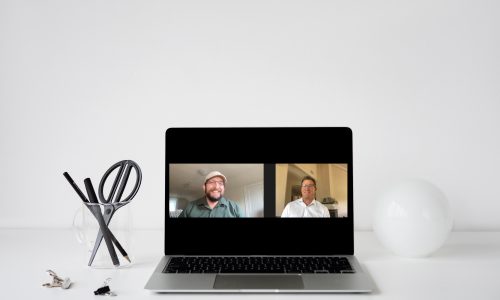Petalfast helps power today’s most exciting consumer brands to scale through sales, marketing, and capital. With its roots in California, the company has since expanded into other states and, as a result, its team has grown.
For serial entrepreneur Jason Vegotsky, Petalfast’s CEO and Co-Founder, building resilient, sustainable teams starts with fostering a culture of growth and learning.
We caught up with him to learn more about Petalfast’s expansion, what he’s most proud of in his career, and the best advice he has for budding cannabis brands entering the market.
Read the transcription of the conversation below (edited for clarity).
Eric Rosen: Thanks so much for joining us. I’m really quite curious about what inspired your entrepreneurial journey.
Jason Vegotsky: I was a basketball player my whole life. I played in high school and in college at Bucknell, and when I stopped playing in school and kind of got into the real world, I felt like a piece of me was done. I’ve always been super competitive and I like to build and go on a journey and kind of get through steps to achieve something with a team. And working for somebody just did not do that for me so after about two years in the real world I said forget it, I’m going to go build my own thing and I’ve been doing it for the last 12 years and I’m about four companies in.
I think it’s that competitive nature and the drive to build something with a group of people, whether it’s going through training camp and a basketball season and getting to the end of that journey, or it’s building a company and bringing investors on and hiring people and bringing all those pieces together, it’s very similar and as long as you have a good business model, there’s kind of a playbook to bring folks together. I think a lot of the success I’ve had in my basketball career has translated to this and I’m alive again. I feel like cannabis is like a double whammy because you have a startup mentality, you’re building a company, but you’re also in a startup industry.
ER: So Jason, tell me about Petalfast. What do you do and what are some of the challenges that you’re helping to solve for in the marketplace?
JV: I was the president of KushCo Holdings for about two years. KushCo was a large public company and we were selling vape and packaging. Even though I didn’t really enjoy selling vape and packaging, it did give me a platform to talk to nearly every brand and every company in the space. We sold something to Canopy Growth, Aurora, and GTI and True Leaf and the small guys and the big guys in every state, so when I got to sit down and talk to all these customers, everybody had the same problem. And coming from a distribution background and from kind of a CPG background, all of their problems resonated and all their problems I have been through and the first thing out of everybody’s mouth is ‘My distributor sucks,’ the second thing is ‘I don’t have a big enough sales team, I don’t know how to create velocity the way I should, retailers are idiots’ — all of these things were consistent and I thought that that was something that I could solve for because that’s what I grew up around, building brands and distribution and getting more product on the shelves and getting them to sell through.
Petalfast took a business model from the food and beverage space — natural food space. Our business model is very comparable to Acosta sales and marketing, Advantage sales and marketing, or CA Fortune — some of the largest selling agencies in the natural food space. They used to call themselves brokerage houses. I don’t think they like to call themselves that anymore but they’re now sales agencies. So we took that business model and then we applied alcohol beverage principles. So, the way we manage our sales team, the way that we manage our supplier distributor relations is all alcohol beverage. Our tech stack is alcohol beverage, the way that we do brand management is alcohol beverage, so while the way we make money is the food and beverage model, the way that we really hire and manage is alcohol beverage.
Petalfast in California is an 18-person salesforce, it’s a six-person brand management organization, we have 13 territory field managers that handle merchandising and trainings and then we have about one hundred brand ambassadors so that we can flex up and do all the demo activity throughout the entire state. So that model is now being replicated throughout the country, certainly exciting times and the industry is moving toward us. As competition increases, as it’s harder and harder to build brands, as you need that extra muscle to get on the shelf, this is where Petalfast comes into play.
ER: Congrats on the expansion, as they say ‘mazel tov,’ that’s very exciting. So out of all the companies that you’ve run before or been a part of before, including Lawless Jerky, what are some of the major lessons you’ve taken from past stints and companies that you’ve been a part of and applied to Petalfast?
JV: Well, I’ve messed up all of them, so the question really should be, what mistakes have you made and what have you learned from them? A guy who went to Bucknell, the former CEO of GTI, his name’s Pete Kadens and I’ve been talking to him for six or seven years and he was always about culture and people. And as a younger person, and as an inexperienced business operator with an ego, you’re like what are you talking about people and culture? Just make a product for a dollar and sell it for two dollars and you’re good, you know what I mean? And I don’t think you fully appreciate what it’s like to build cultures and to get people excited and investing in that. I’ve messed that up pretty much at every company that I’ve been at.
The thing I’m most proud about at Petalfast is we’ve had two people in over two years — 26 months in business — we’ve had two people leave this company out of the 50 people that we employ right now, and Jeana Ceglia, who who is our Chief Strategy Officer overseas our culture, has done a tremendous job in getting everybody engaged.
I was just talking to somebody right now and he said something to me that I was really proud of. He said, ‘I’ve talked to everybody in the company now,’ and he’s a new hire, he’s said, ‘Every single person is on the same page’ and that’s really hard to do so I have learned that ego doesn’t work. I don’t care if you’re the best salesman in the world, it doesn’t matter. When you can bring a group of people together, get them all focused on one mission, it is so much better than any one individual contributor and I think that’s what I’ve learned over the course of 10-15 years — that culture is this special sauce.
I said this to our team this morning on a company-wide call that we had, you know what that special sauce feels like because everybody says like, ‘Oh this company has it,’ but it’s when you are working harder than you’ve ever worked and you’re also having more fun than you’ve ever had in your career. It’s that feeling where you’re really enjoying that work. Sometimes you get it in the gym, too, where you’re starting to see the results and you’re working really hard. That feeling is the special sauce and that’s what we have going on here at Petalfast right now.
ER: Building off of that for just a minute with the brand ambassador work that you’re doing, they’re literally an arm extension of the brands that are your clients and partners so how do you support the brand ambassadors in engaging in authentic connections with consumers that are also aligned with the DNA of the company’s culture?
JV: I think number one with lower level employees, entry-level employees, is showing them a path of growth is hugely important and that’s I think the number one driver of motivation for an entry-level employee. If I am here doing this type of work, is this going to benefit me down the road to move my career forward? So we are big on showing that path. These brand ambassadors, from what I’ve seen, there’s no training, they don’t get to hear brand pitches, they don’t understand what the brands are doing, and we’ve got some scale, we’ve got some scale so we’re able to give part-time 1099 brand ambassadors close to full-time work because we’re growing so much. Consistency with the brands and with our retailers has allowed us to have consistent brand ambassador work that has allowed us to bring in some nice talent.
ER: Cannabis, as an industry, has a really unique set of handicaps and constraints and brand ambassadors are really the unsung heroes of every industry, I don’t care if they’re at Best Buy or in a dispensary, they’re the influencers, so how are you guiding brands and your brand ambassadors to build and earn and retain loyalty at the last three feet of the sale?
JV: Well for us, to gain loyalty, you need to get trial. And when you go into a dispensary, it’s almost overwhelming. There are so many products and getting trial is unbelievably difficult in cannabis right now. So, how do you get a consumer to try your product? It’s either some sort of demo activity where you’re actually smacking the consumer in the face with a booth to showcase what the brand story is and maybe a non-medicated sample, or it’s getting the relationship with the budtender, so the budtender then when talking to say Eric Rosen pushes it toward the brand that we want to be talking about.
So actually one of the reasons why we love in-store demos so much is because if you’re hanging out for three hours talking about Yada Yada or Space Coyote or Bloom, or whatever brand you’re representing, you’re going to be in there for three hours talking with the budtenders and those budtenders are then going to take that information and they’re going to be spitting it out to the rest of the consumer base so we don’t always just look at that brand ambassador work as transactional in the sense that you’re going to just be there for three hours, sell as much product as you can, it’s also very strategic in making sure that we’re giving budtenders samples, talking to them, giving them t-shirts and all that kind of stuff. It is a huge opportunity to be in a store for three hours and we make the most of it.
ER: Given your expansion, you’ve got a really interesting vantage point so I’m curious what you’re most bullish about from a state standpoint, from a product perspective, or even companies that are out there that are that are interesting?
JV: From a product standpoint, it’s great that we started in California because it seems like everything moves from California across the country. I remember talking to GTI and saying solventless is coming, it’s all the rage in California. And now I’m going into dispensaries in Illinois and I’m seeing a lot of solventless products and hash and rosins and it’s all moving across the country. We saw a similar trend with infused pre-rolls. The market was 90 percent traditional pre-roll, 10 infused and now it’s about 50-50 in California. We’ve seen that trend.
Understanding the trends in California allows us to get smarter and get ahead of the game across the country for sure.
From a state perspective, we really like Arizona, I feel like the market itself is easy for us to handle because it’s close by. It’s the second largest market and for us one of the big biggest things about running sales and distribution is just geographically how easy it is to manage. We’re used to California which is the size of the whole Northeast, it’s a beast where you have people all over the place. It is not very conducive to operational efficiencies, especially with the way cannabis licenses are laid out where you’ve got say 800 stores throughout the state that should have you know 18,000 stores like alcohol beverage.
And I think the other thing I’m excited about is that we mature the state quickly. The way that we build out brand plans, the way that we plan, the way that we operate with retailers, the way that we build out our programming, we’re going to mature these states that have been very monopolistic by nature for a long time and now they’re starting to get competitive and you need to apply these traditional CPG methodologies to have success.
ER: Let’s put on the advice hat for a minute. So if you could give advice to a new brand that’s entering the market or about to enter the market, what would you tell them?
JV: Well my biggest learning experience in the first year of starting Petalfast, I was shocked by how many brands were launching that never talked to our retailer. You have a gatekeeper that is the buyer and the retailer and you got to make them happy to get on their shelves, so understanding your competition, understanding price points, understanding your differentiator are going to be big factors in whether or not you’re going to get in the store, so the second thing that is like mandatory if you’re going to have success in cannabis, are you differentiated — like truly differentiated? We need to really differentiate products in this space to be able to have success because there are a ton of products that are the same thing and just having a pre-roll is not going to get the job done anymore, you got to differentiate your story, your pricing, your supply chain, something has to be differentiated from your competition to have success and then I’ll go with one more like do we need this product?
ER: Yeah just because you can doesn’t mean you should, right? Jason, this has been an absolute pleasure thank you so much for carving out the time to be with us today.
Interested in learning more about the cannabis industry and how ForceBrands’ cannabis practice can help grow your business or career? Reach out to Eric Rosen to start the conversation.






